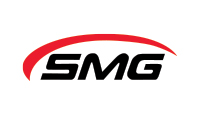We manage energy project development, environmental permitting, remediation and compliance, insustrial hygiene, health & safety, auditing, environmental management, government relations. We solve your problems in all of these areas. We move quickly and dig deeply to reach your goals. We work wherever you are.
How can SMG help you?
SMG POV
Today EPA announced an interim final rule with request for comment to Amend Dates in Federal Implementation Plans Addressing Interstate Transport of Ozone and Fine Particulate Matter. This is otherwise known as the Cross-State Air Pollution Rule (CSAPR), the “Transport Rule” or the “Good Neighbor Rule” requires states to develop plans to reducing power plant emissions that contribute to ozone and/or fine particle pollution in other states. EPA calls these changes “ministerial amendments” and amends the text of the rule that was finalized on July 6, 2011, to “correctly indicat[e] that CSAPR’s Phase 1 emissions budgets apply in 2015 and 2016 and that CSPR’s Phase 2 emissions budgets and assurance provisions apply in 2017 and beyond. Other dates and timelines in the rule were also amended.
These amendments came about as a result of years-long litigation that began prior to the rule’s implantation, when CSAPR was stayed on December 20, 2011. The D.C. Circuit Court of Appeals then vacated the rule in 2012. In 2014, the U.S. Supreme Court reversed the Court of Appeals and upheld CSAPR. Subsequently the stay of CSAPR was lifted.
In the preamble of this amendment to the rule, EPA states that the revision of these dates is necessary in order to comply with the Court’s order. The rule is currently effective as of December 3, 2014, but EPA will consider comments until February 2, 2015.
FEATURED PROJECT
PROBLEM
A local company engaged in manufacturing imported a small amount of a chemical substance defined under TSCA. Faced with a potential EPA enforcement action with penalties assessed for noncompliance under TSCA of up to $32,500 per day per violation, the company called SMG for help.
SMG'S APPROACH
SMG analyzed the company’s current TSCA procedures and assisted the company in developing a proactive, cost-effective compliance procedure. SMG also facilitated a training program to educate employees about TSCA.
MG worked with the company to develop mechanisms that assured adherence with the policies that were being implemented for compliance. Procedures to promptly correct any potential violations and prevent future violations were also put into place.
RESULTS
SMG was able to show that the company complied with the relevant TSCA regulations and was improving their TSCA policies and procedures to assure that future issues were less likely to occur. The company was not subjected to the proposed penalties and now has mechanisms in place to maintain TSCA compliance.
